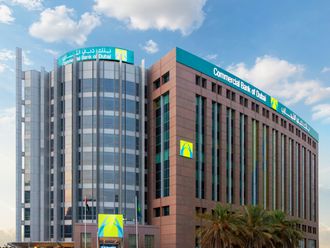DUBLIN: Ireland’s government on Friday hailed a “significant milestone” as it part-listed Allied Irish Banks, six-and-a-half years after rescuing the lender with billions of euros of taxpayers’ money.
Dublin confirmed the sale of 25 per cent of AIB at 4.40 euros (Dh18.05) a share — mainly to institutional investors — raising about 3 billion euros ($3.3 billion).
Shares were floated on the Dublin and London stock markets, while the bank was valued at more than 12 billion euros according to initial trades that saw the share price climb nearly seven per cent to 4.69 euros in the Irish capital.
AIB shares are being traded also in London, which witnessed its biggest flotation in almost six years since an initial public offering for Swiss-based commodities giant Glencore.
In December 2010, at the height of the global financial crisis triggered by the collapse of the property market two years previously, Irish taxpayers bailed out AIB at a cost of 20.8 billion euros.
The part-listing “represents a significant milestone in the government’s long-held policy to dispose of our banking investments, returning them to the private sector over time”, Ireland’s Finance Minister Paschal Donohoe said Friday.
Ireland’s finance department said Friday’s offering was 4.5 times oversubscribed, while some large investors have the option to purchase an additional 3.8 per cent of AIB stock.
“The level of investor interest and support is a great vote of confidence in the strength of the turnaround in the bank and the wider economy,” said AIB chief executive Bernard Byrne, describing it as “a landmark day”.
The government has meanwhile stated its intention to use the proceeds of the sale to pay down a small portion of its 200-billion euro national debt, which ranks among the highest in the eurozone.
Ireland’s former fast-growing Celtic Tiger economy crashed in 2008 after a decade of near double-digit growth that was fuelled by cheap credit and booming construction and property sectors.
This led to the nationalisation of other Irish banks and Ireland receiving an 85-billion-euro bailout from the European Union and International Monetary Fund in 2010 that resulted in deep austerity cuts.
— AFP










